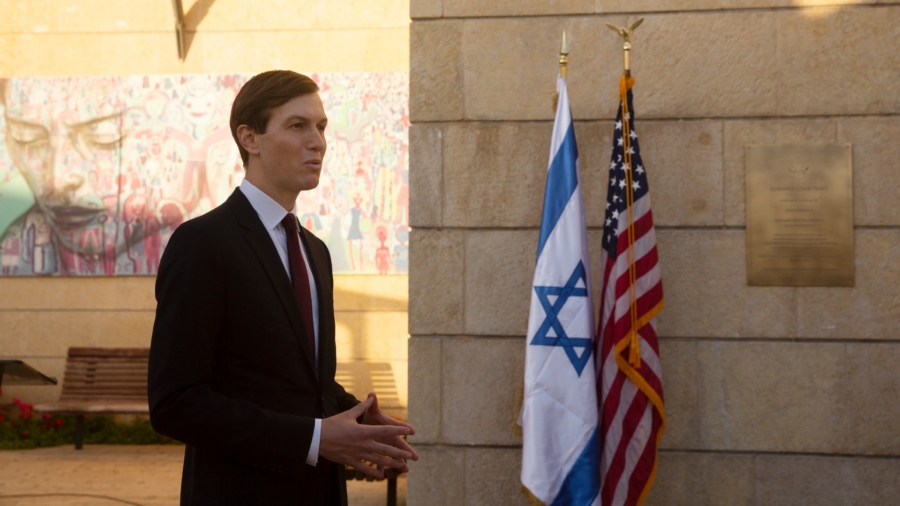BEN-GURION INTERNATIONAL AIRPORT, Israel—Senior White House adviser Jared Kushner led a delegation from Israel to Morocco on Tuesday on the first known direct flight since the two countries agreed to establish full diplomatic ties earlier this month as part of a series of U.S.-brokered normalization accords with Arab countries.
Kushner, President Donald Trump’s son-in-law, has overseen the diplomatic push that saw the United Arab Emirates, Bahrain, Sudan, and Morocco normalize relations with Israel in historic agreements.
As part of the deal, Morocco, which is home to a small but centuries-old Jewish community and has long welcomed Israeli tourists, secured U.S. recognition of its 1975 annexation of the disputed region of Western Sahara, which is not recognized by the United Nations.
The U.S. decision to recognize Moroccan sovereignty over Western Sahara has drawn criticism from the UN as well as American allies in Africa and beyond. African observers have said it could destabilize the broader region, already struggling against Islamist insurgencies and migrant trafficking.
Israel has traditionally backed the UN position and has not said whether it will join the United States in recognizing Moroccan control over the area.

Joining Kushner was the head of Israel’s delegation, National Security Adviser Meir Ben-Shabbat. Both men were expected to meet with Morocco’s King Mohammed VI and other top officials.
The delegations were expected to restore low-level relations between Israel and Morocco that existed in the 1990s and sign several cooperation agreements, including the establishment of direct flights, said Israeli Foreign Ministry spokesman Lior Haiat.
“The goal is to move the relationship from a low level to full diplomatic relations,” he said. He said there was no firm timeline for this process.
Before Israel’s establishment in 1948, Morocco was home to a large Jewish population, many of whose ancestors migrated to North Africa from Spain and Portugal during the Spanish Inquisition.
Today, hundreds of thousands of Israeli Jews trace their lineage to Morocco, and a small community of Jews, estimated at several thousand people, continues to live there.
During the 1990s, Israel and Morocco established low-level diplomatic relations, but Morocco closed its representative office in Tel Aviv after the eruption of the second Palestinian uprising in 2000. Even so, the two countries have maintained good behind-the-scenes contacts, and some 30,000 to 50,000 Israelis continue to visit Morocco each year.
On the tarmac in Israel, Kushner said that he hopes the delegation’s visit will “pave the way for another warm peace between Israel and Morocco,” pointing to the emerging ties between Israel and the United Arab Emirates.
Ben-Shabbat, whose family immigrated to Israel from Morocco, said that “history is being written before our eyes.”
Israelis of all backgrounds have celebrated the normalization accords after decades in which their country was shunned by the Arab world over its still-unresolved conflict with the Palestinians. Saudi Arabia, a regional power with close ties to Morocco, has given its tacit support for the normalization accords and could be next.
The agreements, billed as the “Abraham Accords” after the biblical patriarch revered by Muslims and Jews, were a major foreign policy achievement by the Trump administration. Democratic presidential candidate Joe Biden has welcomed the agreements even as he has vowed to pursue different policies in the region, including returning the United States to Iran’s nuclear deal with world powers.
By Joseph Krauss


